#biblical analysis
Text
‼️ SPOILERS ‼️
Y'all I just finished the bible- the ending was so camp I can't even- Justice for Jesus omg. I mean, I saw it coming from a mile away but it still wrapped everything up really nicely. The eight page long brutal gay sex scene between Judas Iscariot and Jesus of Nazareth was pretty jarring but still really well written! 9/10 would definitely recommend the book :)
21 notes
·
View notes
Text
Me hanging out with Jesus because he was actually pretty chill

Me getting into a fist fight with God because that guy was a fucking asshole

#shitpost#religious trauma#religious trauma memes#ex christian#ex evangelical#jesus memes#god memes#fighting god#fuck god#fuck the church#fuck christianity#christianity#anti christian#christian memes#bible analysis#biblical analysis#swearing#tw swearing#cw swearing
165 notes
·
View notes
Text
Moses and the Burning Bush Scene
Movie VS Scripture Comparative Analysis (Part 1/2)
I will say right off the bat that I am not here to argue which one is better. As someone of the faith it’s obvious for me to say that the Scripture is better as God’s Word is inerrant however I do understand that the movie has a unique way of showing the character of God not in a perfect way but still in a respectable way.
Some people may already have noticed these things to be said of the comparison or that some may not even agree with me. However, as somebody of the faith and somebody who is a very big fan of this movie, I do believe that firmly anybody of all backgrounds can truly appreciate this film for the respectable artistic and religious license that was taken into making this movie.
So, let’s get started!
I understand there are some cuts before Moses enters the cave but I want to start with the part when God speaks to Moses for the first time. As you watch the scene, everything that God says causes the wind to move. As He is the one who brings life in His breath of course, this was a nice consistency of His character and authority. Moses perceives God’s voice is mixed with the wind. More importantly, a whisper.

Most people of the faith describe God’s voice as a whisper, others call it a ‘little voice in their head,’ a conscience, a pit in your stomach, Jimney Cricket. Here, for POE (Prince of Egypt) Moses, God revealed Himself not only visually as the burning bush (which I will want to talk a little more about later) but as the wind.
As it was Moses’ first encounter with God, the Lord was very gentle with him and talked to him lowly as a whisper.
In the screenshot below, Moses replies back: “Here I am.” (So far, this conversation is faithful to the Scriptures). Then, I would like you to focus on how God’s voice changes. It’s still blending with the wind but not as a subtle whisper. It is now a low-talking voice.
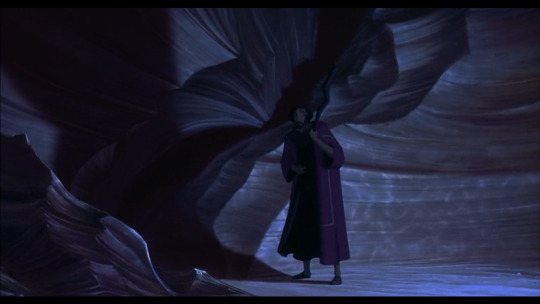
I believe that the reason that this happens is because POE Moses responds back. He acknowledges a presence, which makes him closer to the presence who is talking, although he is already physically. Responding back to your Creator is a sign of obedience, thus obedience creates closeness. Understandably, however, Moses does not know exactly who this voice is so he is naturally and rightfully scared.
“Then He said, “Do not draw near this place. Take your sandals off your feet, for the place where you stand is holy ground.” (Exodus 3:5 NKJV).
The movie understandably erases the first sentence but only because in the Bible, Moses' attention to the burning bush was something extraordinary that he couldn’t figure out, which had to do with the presence of the angel of the LORD in the bush. The movie doesn’t add this detail explicitly, but I have a hint that it might actually be true later. Moses, in the movie, was allowed to come close. He touched the fire with his staff, nothing happened. Then with his own hand, and nothing happened.
So, why would the Lord in the Bible tell Moses to not come close?
It was to show honor to the immediate presence of the LORD. As well as it was for him to take his shoes off. As some Asian countries recognize, once you enter someone’s home you take off your shoes. Well, now that Moses was in God’s ‘home’ he must also take off his shoes. Also, servants of that time would usually be barefoot. So, this was a sign of humility. Once again, a form of obedience.
Either way, in the movie, God’s presence is still honored, but perhaps not completely.

From here on, the conversation may have some of the same things said in the Bible, but in a different order with some things cut out or simplified.
POE Moses asks God, “Who are You?” God responds with a slightly louder voice but still not a normal talking voice: “I AM THAT I AM.” (Hebrew: אֶהְיֶה אֲשֶׁר אֶהְיֶה, 'ehye 'ăšer 'ehye). This phrase is what could be the extended version of the name YHWH, Yahweh/Jehovah. The LORD’s personal name. As the Lord has no equal, He is who He is. That is why He answers this. In the Bible, God doesn’t reveal this until Exodus 3:14. Currently, the events happening are still in Exodus 3:5.
Moses replies as most viewers would, “I don’t understand.” God’s voice now is at normal volume but still makes the ground ripple like water and wind blow gently at His every word. God replies with Exodus 3:6, Moreover, He said, “I am the God of your father—the God of Abraham, the God of Isaac, and the God of Jacob.”
So, here is my take on how much wonder and detail it came to the presence of God in this film. Even though the burning bush was of fire that doesn’t burn or exert heat of any kind, the light refracted off of it was not what a fire would do. The light refractions off the walls around the cave were like that of water.
Then, it came to me. God’s voice in the wind, the light of a fire, the refraction of water, and the holiness of the ground. Earth, wind, fire, and air. Of course, God is not limited to just the 4 elements, but He did make them and much more. I just thought it was a really beautiful thing to show how God created the elements that we know and He makes them obey Him to His will.

Let’s continue. In the Bible, Moses hides his face in fear. While in the movie, he immediately removes his shoes after a momentary state of shock and awe. Personally, I find the reaction to be hilarious because if I was told God was right in front of me I would have that same face too. However, as you take into account what Moses’ relationship with the Lord could have been, presumably he has been taught the ways of the Lord by his father-in-law Jethro, the high priest of Midian. He was content and living a peaceful life in the desert with his newfound faith and new life. He was taught the glory and honor that God has and demands. He knows of the great things that the Lord has done for His people, the holy works of the Lord. The stories of Abraham, Isaac, and Jacob/Israel. He knew of Joseph who brought Israel to Egypt in the first place and why. Now, he was literally talking with the One who did it all.
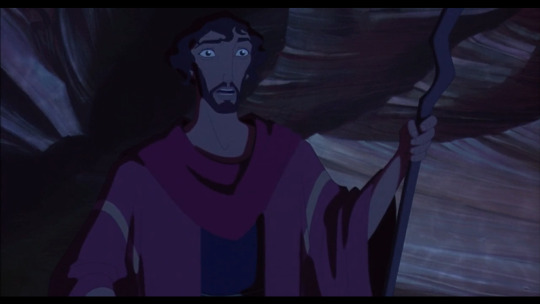
POE Moses asks, “What do You want with me?” I would personally find this face to be of fear and uncertainty. Possibly expecting to be yelled at or scolded. Perhaps he is thinking of his past as an Egyptian prince and what he has done.

What really intrigued me though was that as soon as God mentions Egypt the light turns from a white-bluish tone to a more yellow-orange. Why would God do this exactly? Nowhere in the Bible was there any sort of ‘color-change’ like a mood rock. 😂 However, it was intended to set the tone of the conversation.
And the Lord said: “I have surely seen the oppression of My people who are in Egypt, and have heard their cry because of their taskmasters, for I know their sorrows. (Exodus 3:7 NKVJ)
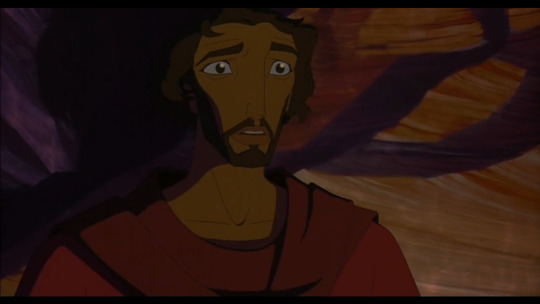
For us the viewer and especially for Moses, it brings us back to Egypt even though we are not physically there. Even during the opening scene, we know of those color schemes. It was a nice visual touch.
I would also like to argue that the other voices from Moses’ past may not be what God is making him hear but what Moses himself is hearing in his own head. God may be speaking audibly and the other memories are thoughts or recalling of moments. Perhaps, both are audible or both are thoughts in his head. Either way, it works.

How I felt about it as a little young’n was that this was all audible and God was replaying other memories in his life relating to the conversation. From Moses’ reaction to the sound of a whip, one could argue that he was reminded of how God’s people were treated and the day he fled from Egypt, thus from his own mind. To cater to us the viewer, we have to hear everything that may be influencing a character's movements. So perhaps the memory in Moses’ mind was echoed audibly.
However, later in the conversation, God reveals to him something of the future: “Let my people go!” God can also tell us what the future holds. Prophetic messages. Some are audible to others, some are not. I will say that I love how this can be interpreted freely and left to interpretation. There are many ways that God speaks to us so I truly respect this decision.

Another visual touch was how the animators made the burning bush almost resemble human movement despite it being a supernatural presence.
When God speaks of “a land flowing with milk and honey,” you could almost hear His voice say it and show the significance of abundance, like arms physically stretching out.
(Part 2)
#moses#bible#christianity#judiasm#abraham#movie analysis#prince of egypt#poe#moses prince of egypt#God#Jesus#Holy Trinity#Burning bush#Exodus#character analysis#analysis#biblical analysis
20 notes
·
View notes
Note
Will The Chosen get into what Jesus could have thought about gay people? Did gay people approach Jesus asking Him to perform marriage ceremonies? Did people suffering from gender dysphoria ask Jesus to use His power to change their gender?
I doubt that the Chosen will tackle topics like that, since because of how much attention is given to conversations about those subjects, it's likely that any attempt to touch on it would take the show's focus (and what people take from the show) away from what it should be: the Gospel, and Yeshua Himself.
As to the historical aspect, it's pretty certain that no gay person would have asked Yeshua to perform a marriage ceremony. Homosexuality was a capital offense at the time (along with a host of other things, such as adultery--more on that later), so it would have been incredibly dangerous to admit to openly practicing it. Additionally, because ancient Jewish marriage was a much larger endeavor than marriage today, this would have been practically impossible: the first stage of the marriage ceremony began a year prior to the final feast and consummation, and the families of both parties were deeply involved. Basically, it would have taken much more than just Yeshua's approval to facilitate any marriage! (As an aside, many of the rich traditions in these ancient ceremonies are carried on in modern Jewish weddings. Some really cool stuff!)
That being said, what we do know is that Yeshua sought out the lowly, the outcasts, and those who suffered; it's quite possible, then, that He did meet someone struggling with their gender or sexuality and the way those things affected their life, and perhaps some of them did seek Him out for advice or help.
As to how He would have responded or what He thought about these people: while I won't speculate as to what He would have said or done, I know Yeshua always spoke and acted with the perfect balance of grace and truth. Probably the best example of his approach to difficult matters like this is found in John 8:2-11:
At daybreak, He appeared again in the Temple Court, where all the people gathered around Him, and He sat down to teach them. The Torah-teachers and the P’rushim [Pharisees] brought in a woman who had been caught committing adultery and made her stand in the center of the group. Then they said to him, “Rabbi, this woman was caught in the very act of committing adultery. Now in our Torah, Moshe commanded that such a woman be stoned to death. What do you say about it?” They said this to trap him, so that they might have ground for bringing charges against him; but Yeshua bent down and began writing in the dust with his finger. When they kept questioning him, he straightened up and said to them, “The one of you who is without sin, let him be the first to throw a stone at her.” Then he bent down and wrote in the dust again. On hearing this, they began to leave, one by one, the older ones first, until he was left alone, with the woman still there. Standing up, Yeshua said to her, “Where are they? Has no one condemned you?” She said, “No one, sir.” Yeshua said, “Neither do I condemn you. Now go, and don’t sin any more.” - John 8:2-11
There's a lot we can learn from this passage, but most of all we are shown that our God is a loving and merciful God who cares for us when others, or even society as a whole, do not, and He will guide us to the right path to enable us to live a life honoring to Him. That love that He showed to the woman in the passage above is the same love He showed to everyone--and can show to us today! You and I can personally experience His love, and your own interaction with God will be much more valuable than anything I can hypothesize about :)
#hope that answered your question!#the chosen tv series#the chosen#yeshua#christianity#my christianity#meta#quality meta seal of approval#not to hype my own post up i just put that on all meta posts so that i can find them#kay can i just catch my breath for a second#my meta posts#responses aka the ramblings of my brain#biblical analysis
24 notes
·
View notes
Text
Look, I'm not saying that Hannibal killing Chilton was the right way to handle his abuse buuuut if you look at it biblically, all sin is the same so technically- technically- Chilton is just as bad as Hannibal and we can root for Hannibal no problem.
#nailed it#God looking at me right now like#what are you doing#silence of the lambs#for legal purposes this is a joke#but also#evil gonna evil#biblical analysis#?#hannibal lecter#frederick chilton
6 notes
·
View notes
Text
The Exorcists’ Masks of Virtue
The vast majority of Exorcists in Hazbin Hotel have a notable design element that other angels don’t: their masks are missing an eye. Specifically, the right eye.
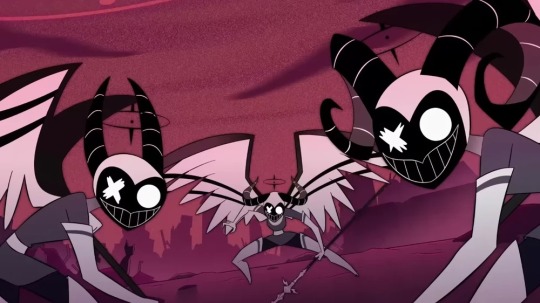
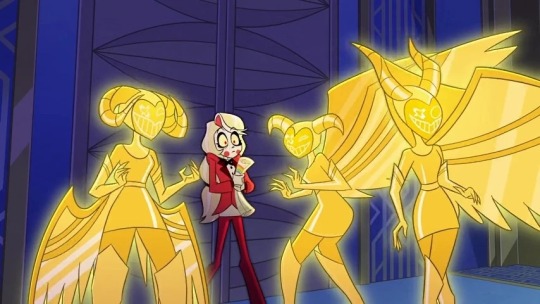
I believe this is a reference to the Bible, Matthew 5:29. Jesus says, “If your right eye causes you to stumble, gouge it out and throw it away. It is better for you to lose one part of your body than for your whole body to be thrown into hell.”
He’s being hyperbolic. Mr Free Healthcare was not pro-mutilation. What he means is that you have to be willing to make sacrifices to prevent sin. The context of the eye metaphor is him condemning adultery and warning that even something as easy, casual and small as a look full of lustful intent can lead to further, worse sin if you don’t notice your sin, hold yourself accountable for it and do the work to not let it influence your decisions. This will probably be hard. It could be very, very painful. Changing your perspective can feel as horrible as plucking out your eye, so many people can’t bring themselves to do it. But although it won’t feel that way in the moment, it’s healthier for our general wellbeing in the long run to abandon traits and behaviours that damage ourselves and/or others.
(You may notice that Jesus’s teaching that you can have sinned, redeem yourself by giving up sin and thus escape damnation is the founding principle of the Hazbin Hotel. You may also notice that it contradicts everything the Exorcists believe.)
The Exorcists seem to follow this idea of painfully excising badness for the sake of the greater good devoutly to the point of placing it above teachings like ‘Thou shalt not kill’, with their job being to remove sin, in the form of sinners, to protect Heaven. Hence the missing right eyes. They’re a declaration of moral righteousness and inability to stumble.
But the truth is that the Exorcists all have their right eyes. Their flawlessness is a facade. Underneath, they are untouched, think themselves morally untouchable and, as shown by their horror and outrage when even one of them is killed, would much rather be physically untouchable too. This perfectly represents their complete unwillingness to acknowledge their own faults, let alone improve. They are never the ones who sacrifice. They force the sinners to sacrifice and don’t compensate it with any salvation. They metaphorically rip out the sinners’ eyes, but still condemn their entire bodies as inherently, permanently sinful. So they’ll just have to do another Extermination to get the other eyes! And another one to cut off their right hands! And so on until there’s nothing left.
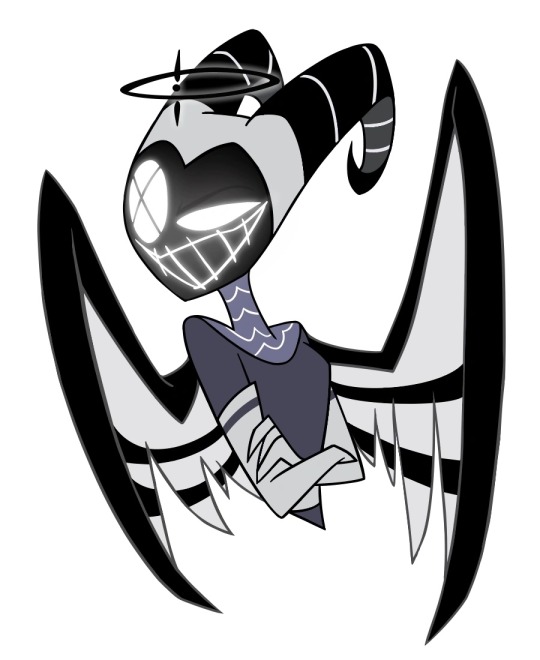
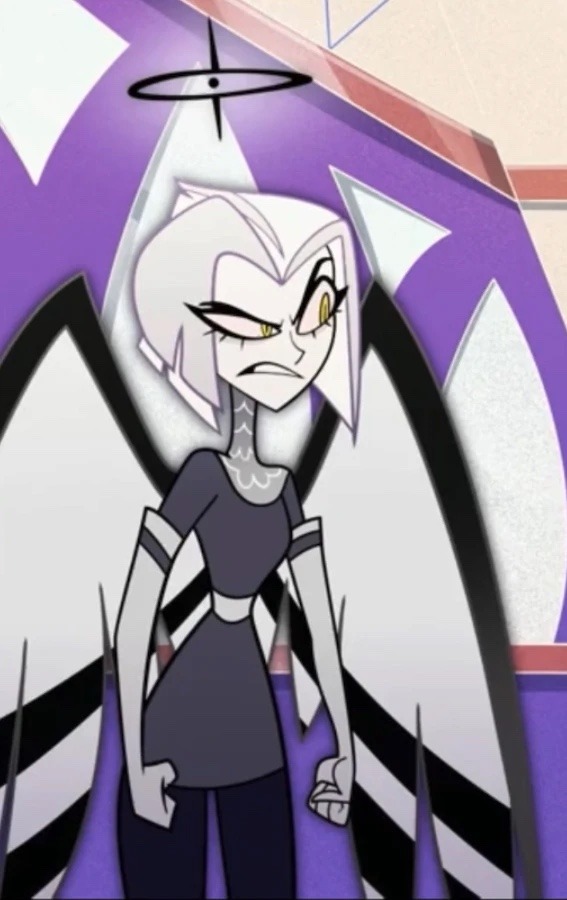
The only exception to the rule is Vaggie, both in appearance and character. Her mask has the left eye crossed out instead. Even before her expulsion, she’s set apart to the audience as an Exorcist who has the capacity to, shall we say, see a different side of things. Her mask having its ‘sinful’ right eye reflects her understanding that the Exorcist worldview is wrong.
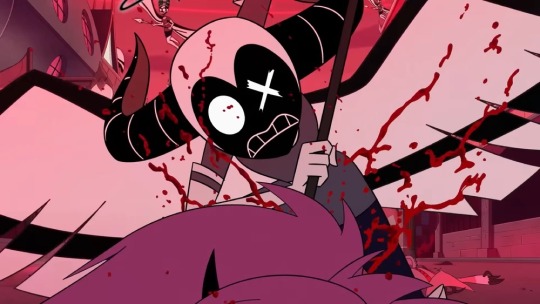
When she almost kills a demon child, her hateful vision clears. She discards the part of herself that’s an unquestioning, merciless agent of death, terror and grief… and as punishment for what Lute perceives as treacherous weakness, gets her eye plucked out.

Of course Lute leaves her with only the ‘sinful’ eye. It brands Vaggie forever as the inversion, a perversion, of what the Exorcists are meant to be.
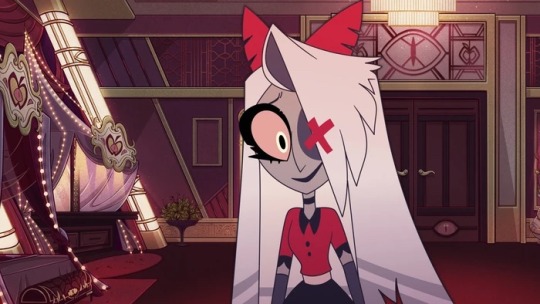
You know, all this talk of eye removal in the Bible reminds of another line - ‘an eye for an eye’. Adam directly quotes it in “Hell is Forever”. He uses it to frame the Exterminations as Old Testament-style punitive justice; the sinners did harm and so they receive it. But putting aside the debate about how ethical the concept of revenge is, the entire point of taking an eye for an eye is that it’s proportional. The punishment fits the crime. If someone cuts your eye out, you shouldn’t murder their whole family in front of them and then slowly disembowel them to death. That would be the sin of wrath. You should just make them pay without excessive pain or collateral damage. This is the fairest form of revenge.
The Exorcists don’t do that! The Exterminations aren’t proportional to the wrongs of all they hurt, nor was Vaggie’s brutal punishment equivalent to her extremely mild insubordination. Lute literally takes Vaggie’s eye, and more, after Vaggie does nothing to her! That’s the opposite of the phrase! Adam and his soldiers are wrathful and cruel, deriving satisfaction from others’ suffering. But they just can’t stop going on and on about how disgustingly evil the sinners are, in total hypocrisy… despite some of the sinners being far better people than the genocidal Exorcists are… it’s like they’re obsessed with specks of dust in the sinners’ eyes when they have massive logs stuck in their own. Oh hey, that’s in the Bible too!
#both emotionally and symbolically i am rooting for vaggie or charlie to take out one of lute’s eyes#i was like ‘cool vaggie’s missing the opposite eye to her former mask!’#and then i went back and saw that her mask was also different#and then i went down a rabbit hole of biblical mentions of bad things happening to eyes#i know god and jesus (and the holy spirit) probably won’t appear in the show#at least not in person#but i do cherish the mental image of adam and his genocidal army hanging out#when jesus christ bursts in with a whip#and gets all ‘you have made my father’s house into a den of thieves’ on them but an order of magnitude more intense#because HE SAID LOVE ONE ANOTHER#WHERE IS THE LOVE#HE SPECIFICALLY REQUESTED IT#i’m not christian! i’m a hardcore atheist!#religion is just as fictious to me as egyptian mythology#however i am also autistic and have major special interests in mythology and folklore#so here i am fervently writing analysis of the sermon on the mount#hazbin hotel#hazbin vaggie#hazbin hotel vaggie#vaggie#hazbin hotel exorcists#hazbin exorcists#hazbin hotel analysis#hazbin analysis
244 notes
·
View notes
Text
Interesting thing I’ve noticed is that Alastor has parallels and contrasts to all three members of the Morningstar family.

Charlie’s the obvious one, they’re business partners and co-owners of the hotel. They do the same work but for different reasons–Charlie out of a genuine desire to help people out of bad situations and Alastor presumably to help himself out of his own. They share a similar color scheme and formal dress, and they’ve been described as having a shared sense of humor.

Lucifer is the Sin of Pride, and it’s undeniable that Alastor has that in spades. They’re clearly meant to visually parallel each other, as their outfits are incredibly similar with a couple of inversions (Alastor’s white outline with stripes on his red overcoat vs Lucifer’s red outline with stripes on his white shirt). As are their powers–Lucifer is associated with light, while Alastor seems to wield shadows. You can also notice that Lucifer’s hands in his full demonic form are identical to Alastor’s, black with red claws/tips.

They’re both attempting to influence Charlie as a father/mentor, Lucifer out of love and Alastor again out of his own desire for freedom. A stag is also a historical representation of Christ (and I will be covering Alastor’s multiple parallels to Jesus in a later post, I’m completely serious), and Lucifer is, well, the Devil from the Bible, which fits with their instant hatred of each other.

NOW LILITH. LET ME TALK ABOUT LILITH.
We don’t know a lot about her, and what we do know may be told by an unreliable narrator. BUT if we go at least by the broad strokes of Charlie’s opening story, we know that she:
1. Thrived in Hell via broadcasting her voice to the masses
2. Was highly ambitious and danced to her own tune
3. Despises submitting to anyone. (I.e. Adam, and just look at the dirty glare she gives Lute.)
And now, as we see in the finale, she’s currently (possibly trapped) in a deal with a greater power.
Sound familiar?
#hazbin hotel#hazbin hotel theory#hazbin hotel alastor#alastor#charlie morningstar#lucifer morningstar#lilith morningstar#hazbin hotel analysis#you know it's already a red/death flag when a character has parallels to one Biblical figure#and Alastor has parallels to like. Three. At least.#genuinely the hell did this guy do#why is he like this
76 notes
·
View notes
Text
Original Man Adam Theory
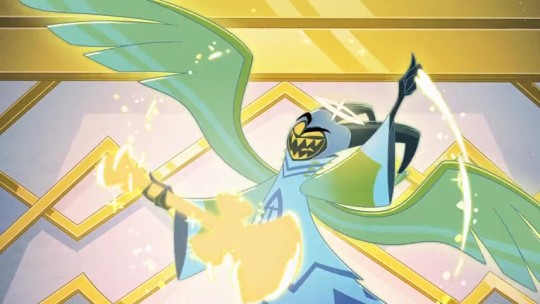

It's possible that Adam went to Heaven not because he was a virtuous person who abstained from sinning but because of lack of temptation. If we go through the list of deadly sins and biblical account of what happened after The Fall, he couldn't commit any of them. Pride? Of what? He got cowed by God very hard. Greed? Gluttony? Sloth? He is forced to toil away every day for basic sustenance, there is no wealth to hoard, not enough food to gorge on, and if he is lazy, he'll starve to death.
Lust? There is only one woman he can lust over and that woman is Eve. We call that faithfulness in marriage. Wrath? Envy? Again, against whom? The first victim of those is Abel. He does commit every single one of them after death, though.
Rather fittingly, Adam has been shown to possess several of the Seven Deadly Sins from Charlie's time speaking to him. He pridefully boasts about how superior he is at things to people, lustfully talks about how he convinced another angel to sleep with him, mentions that he got annoyed over said angel wanting another one of his band members instead of him (implying he was envious he wasn't her first pick), got angry over one angel getting killed compared to the thousands of demons he kills every year and gluttonously wolfs down a pack of ribs while meeting with Charlie, is the one angel greedily wearing mostly gold clothes (and actually has golden horns as ornaments in his fashion getup), and is too lazy to make an appearance in person, instead using a hologram since he couldn't be bothered to actually talk to the princess of Hell and hear what she has to say. And, again, rather fittingly, because he's an angel, he doesn't see the irony in any of this.
What's even more ironic is Charlie is shown to possess all of the Seven Virtues despite being a demon and the daughter of Lucifer. Again, Adam and Lute are both such petty jackasses that they don't see the irony in this.
In a way, Adam can be seen as a representation of corrupt religious figures: because he's on the side of good, it means he can't be wrong, that he can get away with anything, etc while preaching to others and looking down upon them for their faults, perceived or otherwise. Conversely, Emily represents the virtuous religious figures, being kind, understanding and open-minded to all she meets, yet is quick to condemn legitimate wrongdoing even when it comes from those she previously trusted/saw as good people, even agreeing with Charlie - the Princess of Hell - that Heaven's practices aren't as lofty as they preach.
Ironically enough, that seems to imply Lucifer bringing free will and the creation of hell was. In hindsight, a huge improvement for everybody involved despite appearances. Because evil exists and now people would not be inherently sent to heaven just for preaching loyalty now, people would be capable of understanding evil and choose not to indulge into it. By resisting sin or even learning from the failures, there's now the chance ascended mortals would have a chance of being actually good people who made the right choices even if the process is still far from perfect. Adam is essentially a pampered child coddled from evil, so now he believes anything he does is justified. Has anyone just simply gone straight to heaven without understanding evil, Heaven would be probably just as much of a bad place as hell currently is.
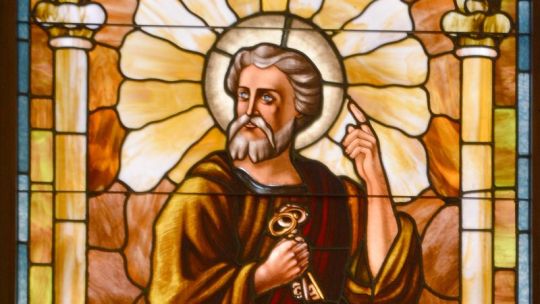

There's another heavenly mortal within heaven's files: St. Peter himself. Despite being Jesus' apostle, Peter was a victim of many evils in life and also made a fair share of mistakes, with his denial of Jesus being one of the most notable. He had to interact with sin and temptation for all his life and likely also making his share of blunders which he repented greatly. But rather than make him a horrible sinner those events actually made him a stronger, nicer, much more complete person. As such when he's a heaven's gate he's presented as a Nice Guy and very reasonable person unlike the sheltered Adam.
But while Adam says that he never made a mistake in his life, Peter double checks if there was a mistake with Charlie's appointment until he finds out she was correct , and then he proceeds. While it's not explicitly stated, this showcases that Peter is capable of admitting his mistakes. Recognizing a wrongdoing and repenting is a crucial part of salvation.
#hazbin hotel#vivziepop#hazbin analysis#character analysis#hh analysis#hh commentary#st. peter hazbin hotel#hazbin hotel adam#adam and eve#adam hazbin hotel#adam#welcome to heaven#hazbin hotel analysis#hazbin hotel theory#charlie morningstar#hazbin hotel charlie#hazbin lute#seven deadly sins#biblically accurate angel
30 notes
·
View notes
Text
25/?? Eschatology for Dummies
(Previous) | (Index) | (Next)
⛬
Once again, we dive into that font of madness, Prometheus. I lied last time, we’re not talking about language today, I want to bash my head against the problem of “what in blazes is the intent of this movie”.

As the expedition enters the alien structure, suddenly Shaw remembers that germs can float.
“Wait. We still don’t know how Holloway got infected. If it’s in the air–”

This is one of those maddening little moments where the script tells me that no, the earlier removal of helmets was not just the oversight of someone who didn’t know better. The script chose violence.

“Smells fine to me.”
So does VX nerve gas. Truly, this is the mental acumen required to become rich.
The movie attempts to raise tension through a ZOOM AND ENHANCE, and cluing in those in the audience who may have been thinking “Ha! Foolish Engineers! How would they ever destroy life on Earth if they don’t have any spaceships?”

Well, turns out, there are these great big buildings called “hangars”, and you can put spaceships in them, sometimes even under the ground. I almost feel like if they hadn’t buried the ship, Holloway would’ve tried to see if he could do a burnout in it.

David, meanwhile, is having a great time. He’s giving a guided tour of the ship (that he explored more thoroughly than anyone else), pointing out their technology (that he learned how to use), explaining what they were doing (which he figured out before anyone else did), and assuring Weyland that yes, he can talk to the Engineer (which no one else can do), blithely skating by the reasons why he knows Holloway didn’t die from an airborne illness and how the Engineers were going to press the reset buttons on Earth. Simultaneously excelling at what he was supposed to do and also anticipating Weyland’s inevitable doom, possibly even that of humanity as a whole. It feels appropriately childish for a character that’s extremely young, extremely smart, and has had the worst socialization this side of Immortan Joe’s war boys.

Weyland doesn’t care about any of that, because he’s a horrible homunculus of an old Englishman formed out of a forty-five year old Aussie. This continues to vex me, even now. I keep trying to figure out why they did this. Did they originally intend for him to be depicted as young and change their mind? Was the mobility aid exoskeleton thing they put him in heavy and cumbersome? It’s hard to see in these screenshots, but he is wearing one.

Honestly, just have Lance Henriksen play another Weyland again. Lance can definitely play scumbags, and it would honestly be funny to have every single Weyland in every single time period played by him. Have him play Vickers too, for good measure. It would’ve taken me out of the film less than this.
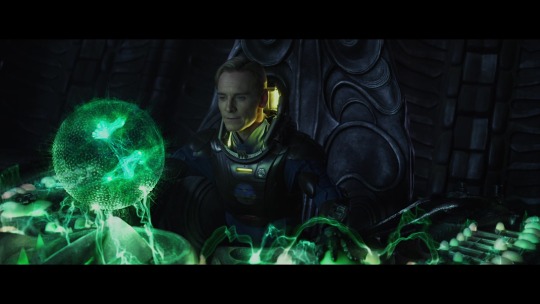
At this point, I personally did not care about any characters besides David and the Engineer. Which is a very strange position to find oneself in, caring most about two characters who seem just fine with humanity going pft!

And I’d like to examine that. Because fiction can put you in all sorts of strange headspaces that can be thoroughly contradictory to personal morals and self-interest. What was the movie trying to do here, and where has it ended up?
I want to start with some assumptions that mass media tends to make. Fiction, in general culture, is often presented as a moral lesson. Your protagonists are virtuous, and anything that stands in their way is villainous evil. The protagonists are also expected to be likable, and the audience is expected to root for them. A moral tale of who is worthy and who is not.

This is only a small piece of what fiction is. No one of these things is required. Villains are not required, sometimes problems aren’t caused maliciously. Protagonists do not have to be moral. Moral characters don’t have to be likable. You don’t have to root for the protagonists. And none of these divisions are binary.
I am uncertain whether we are supposed to root for the protagonists in this movie. Ridley Scott isn’t a stranger to this idea–look at Blade Runner (1982). Is it good that Deckard hunts down fugitive replicants? No. Absolutely not. Is it a compelling story? Yes! It’s beautifully told and tragic! If you make me watch Roy Batty’s monologue I will cry.
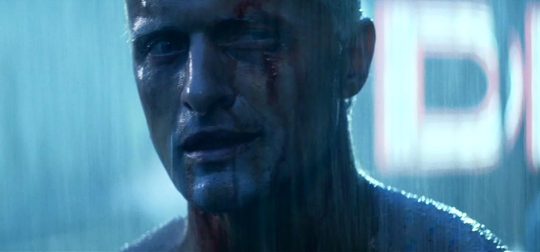
So. It is entirely possible that we are supposed to find the human characters unsympathetic. The Engineers created humanity, and then decided to destroy it. This could have been planned from the start–many religions describe cyclical, world-ending death and rebirth, after all. But this movie is heavily influenced by christianity. Those sects that believe in a destructive apocalypse call it the Last Judgment of humanity, something that occurs when the world has fallen into a state of corruption.
Which then brings us to the question: Does humanity deserve that most fatal judgment?
I mean, in real life, I’d say no, absolutely fucking not. The problem of a suffering world is not sanely responded to with “I’ve got a solution: murder everything”.
This is fiction, though. We are being presented with a vision of humanity. This has the potential to be a counterpoint to the Engineers’ thinking, or their evidence, or a mix of both.

What is it, then? Most of the cast are morons, selfish, or featureless ciphers. They are a very pessimistic view of humanity. And remember, this is fiction. People don’t need to act like real people. When you think about redeeming qualities in yourself, in your friends, in your favorite so-and-so, this fictional realm does not necessarily contain them. In its barest form, it only contains the characters we see.
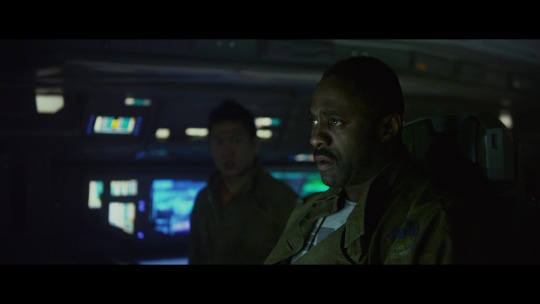
We’ve got Janek, who’s been charming and indicated he’s willing to stop the Engineers here, but that’s all we know about him. He’s also behaved in negligent ways that contributed to the deaths of Millburn, Fifield, and the nameless guys mutant Fifield wailed on. Christian morality is big on redemption as a path to unconditional absolution, so is he redeeming himself through a last-minute sobering up? Maybe. I’d note he’s missing the “confession” and “recanting past sins” parts that are usually bundled up with that.
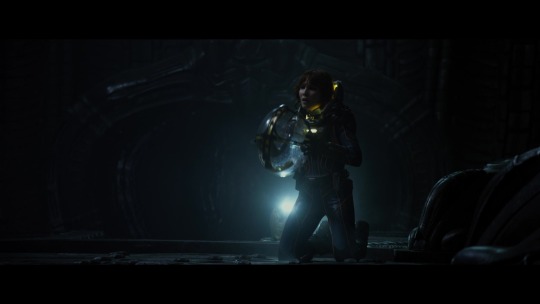
We’ve also got Shaw. Shaw has all the makings of a Final Girl, somebody who is destined to survive the plot. They usually have some redeeming quality that makes you want to root for them. What does Shaw have?
Well, she’s got a never super-defined strain of christian faith. And she’s had a really shit time lately, so it would be cruel to watch her get kicked around more.
So, that’s two. Two could be enough in Abrahamic religions–Lot flees from Sodom to Zoar, and it’s spared from destruction because of its presence. Sure, he does some Weird Shit, but he qualified as righteous by whatever standards were at play there. But Sodom and Gomorrah were destroyed for want of ten righteous people.

And all that gets more complicated in New Testament stuff, after God’s pinky promised not to destroy everyone again, except for the aforementioned Last Judgment thing. Is this movie, as christian allegory, advocating for a god of forgiveness, or depicting a just god who punishes the wicked?

No idea. It doesn’t have to be clear, obviously, fiction doesn’t have to be clear, any more than it has to be moral. I didn’t personally want the Engineer to sail off and destroy Earth, but frankly, I could see it from that perspective, given what this poor bugger’s met with upon waking up.
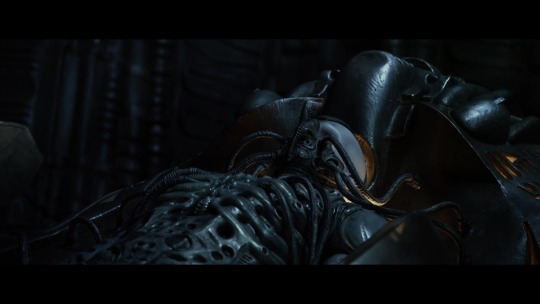
Next time: our Engineer wakes up from a two thousand year trauma nap to find some little monkeys yelling at them. Surely, this will go well.
⛬
(Previous) | (Index) | (Next)
⛬
Alt-text rambles:
https://extra-images.akamaized.net/image/8a/5by6/2021/04/17/8a6f54c4f0ca4bd397cc22aceb4cb30e_md.jpg
https://en.wikipedia.org/wiki/Torc
#Prometheus 2012#Prometheus (2012)#This movie keeps trying to be biblical and I keep trying to meet it half-way on the analysis#only to be left hanging like the movie wandered off in the middle of offering up a high-five
29 notes
·
View notes
Text
Let’s talk about Pre-Fall Crowley’s choir.
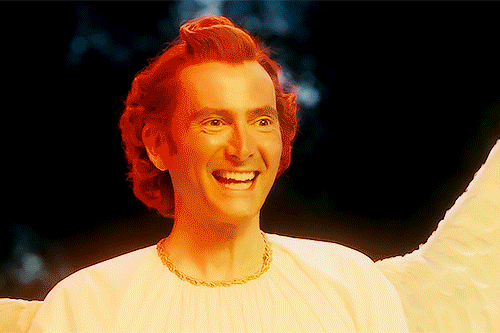
I’m still learning, so if someone more expert than me has a correction, be my guest.
There are, by my awareness, nine choir of angels. A helpful list is below.
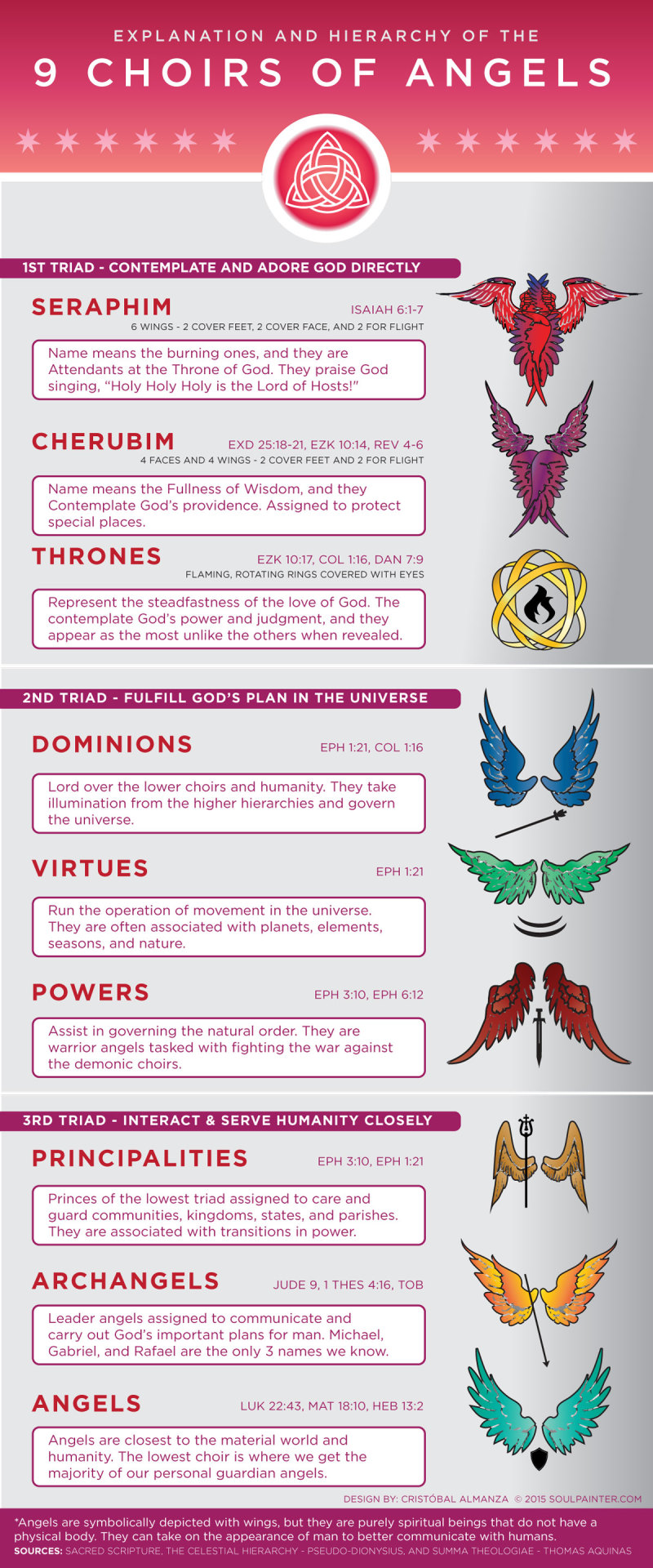
Muriel claims that they are of a lower rank, and hence cannot open the logbook.

"You'd have to be a throne, or a dominion, or above."
And once Crowley manages the book open, at the nonchalant claim of an unchanging password, it stuns Muriel.
This, to even an untrained eye, is intentional. They want us to know which two options could fit Crowley, seeing as evidently he is, or was, quite powerful.
So let's talk about that.
First Argument: Throne
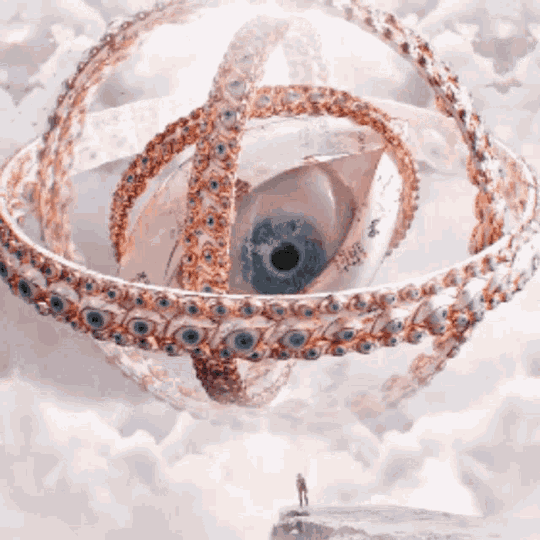
The description of a Throne angel is:
"The 'thrones'; also known as 'ophanim' (offanim) and 'galgallin', are creatures that function as the actual chariots of God driven by the cherubs. They are characterized by peace and submission; God rests upon them. Thrones are depicted as great wheels containing many eyes, and reside in the area of the cosmos where material form begins to take shape. They chant glorias to God and remain forever in his presence. They mete out divine justice and maintain the cosmic harmony of all universal laws." [Wikipedia]
So we can break that down.
Thrones are supposedly submissive, and peaceful angels. They are the chariots, or literally, thrones, of God. Being in the First Triad, with direct contact to God, they contemplate Her/His power and judgement.
Sound familiar?

Let's lay out a few of the reasons Crowley could have been a Throne.
"Submissive" angels. If he had foregone that demand, and questioned God by unintentionally challenging Her decisions, he would have been an unworthy angel.
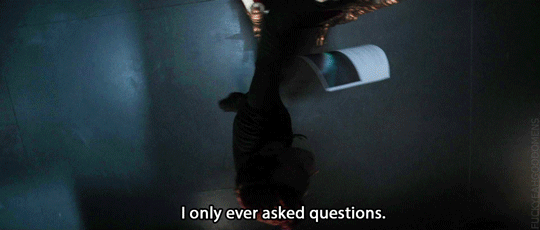
2. He would have had direct contact to God, and therefore could have asked Her himself. That would have been inexcusable, and perhaps a seeming abuse of power.
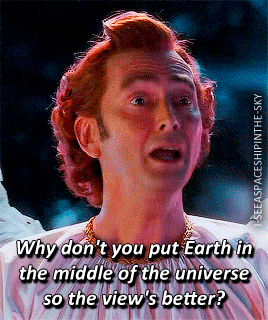
3. To contemplate Her power and judgement, he could have truly and utterly contemplated. Been too good at his job, and disagreed with a "flaw" in the plan.
All evidence points to Throne, right?
Second Argument: Dominion

Now, the definition of Dominion angels is:
"Dominions are a group of angels in Christianity who help keep the world in proper order. Dominion angels are known for delivering God's justice into unjust situations, showing mercy toward human beings, and helping angels in lower ranks stay organized and perform their work well." [LearnReligions]
Right, not a huge eye-catcher, there. Doesn't sound like what we've seen of Angel Crowley.
But wait.
"The Dominions (lat. dominatio, plural dominationes, also translated from the Greek term kyriotētes, pl. of kyriotēs, as "Lordships"). Traditionally, they are held to govern the movement of stars, planets, and other celestial objects." [Wikipedia]
Oh.
Now that sounds more likely.
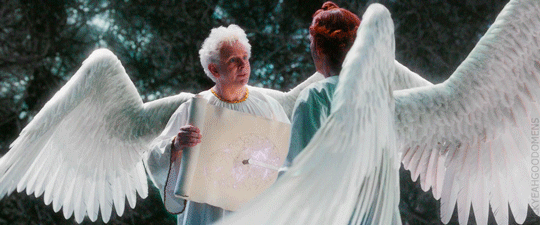
So, our reasons here are:
Being in the Second Triad, they fulfill God's plan, and directly govern the procession of it.
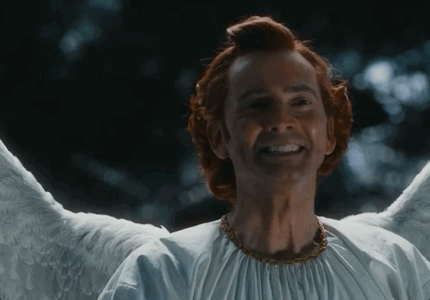
2. They, quite literally, rule the stars, planets, and celestial objects. What more evidence do you need?

3. They're known for delivering justness into unjust situations...

In summary, there are many different options for what Crowley's hierarchical position once was. The two most blatant, and likely, were not being an Archangel (in my opinion), but rather either Dominion, or Throne.
That being said, I am unsure which one he was. There is more obviousness in seeing that he made the stars, and saying he was a Dominion. But, then again, there is more logic and reason in imagining he was a Throne.
What do I think? Hard to say. I'd imagine, considering the blatancy of the plot, that Crowley was a Dominion, but in theory, I wouldn't be surprised if he was a Throne. Honestly, while writing this, I started thinking he might have been a Throne.
Please, do share your thoughts and theories!
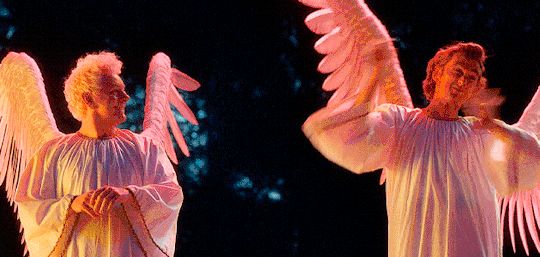
#cw for possible frightening imagery#it's just biblically accurate angels though#good omens#crowley good omens#crowley#angel crowley#pre fall crowley#nine choirs of angels#analysis#gomens#good omens 2#mythology#religious nerd alert
15 notes
·
View notes
Text
I think If I said Micah Bell isn’t real (game wise, obviously he’s not real) I would mean it differently from “yeah he’s fake and doesn’t exist in the game and he’s a figment of everyone’s imagination” or even worse “everything was all in arthur’s head: a theory” but more in the way that he’s not a real character, that his purpose, his point, his existence is not to be any person of his own, or a character of his own but a break off from dutch. A character-manifestation of Dutch’s mental decline, abuse, and the overall bad that looms.
The louder and more prevalent Micah gets you can obviously see the more Dutch’s mental health and sanity declines, the more his facade starts to shift from the one he put on to someone almost akin to Micah in a way. Micah is a manifestation of evil and abuse for the entire gang but he is specific to dutch as he is a break off from him, the cartoonishly villainized personification of all of Dutch’s worst traits and the traits he hides from the rest.
So really Micah Bell will never truly be real, he is not a real person or character, simply the other form, the twisted shadow that’s stretched, the one that looks bigger then the object in front, warped and shifted but still the exact same figure.
#approved by a friend#multiple friends actually#micah bell#red dead redemption 2#dutch van der linde#rdr2#rdr2 analysis#analysis#character analysis#max biblical prophecies#red dead redemption
43 notes
·
View notes
Text
I just went through my blog and re-read all of my posts tagged as "analysis" and I'm loving the dichotomy I've displayed over the past year or so.
Some times it's: "Miraculous: Tales of Ladybug and Chat Noir continues to be the single worst show I've ever seen and here's a wall of textual evidence to prove it."
Other times it's: "Homelander is an exceedingly interesting and nuanced villain who is so emotionally repressed that the only people he will kill are those who mean nothing to him, and those who mean everything to him. No in-between."
And then in some posts I'm just like: "I've read Bible stories and have decided that God is an irredeemable asshole and I'm going to kill him in real life."
#sometimes I'm like “here's the saddest fucking thing you've ever heard about a character you've probably never even thought twice about”#others I'm like “Naruto's canonical reason for being alive is Sasuke and they totes should've gotten together”#(no shade to sakura or hinata though)#ml analysis#the boys analysis#miraculous analysis#biblical analysis
4 notes
·
View notes
Text
Moses and the Burning Bush Scene Movie VS Scripture Comparative Analysis (Part 2/2)
(Part 1)
Back to God and Moses’ conversation. POE (Prince of Egypt) Moses’ response to being asked to go to Egypt to liberate God’s people is a very simplified version of Exodus 3:11 and 4:10.
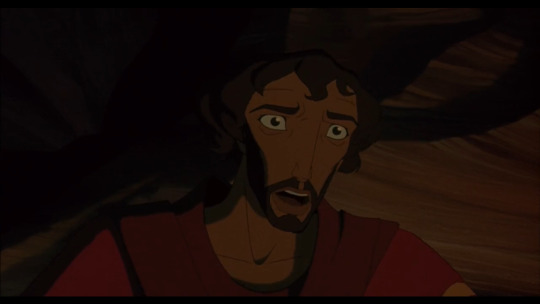
But Moses said to God, “Who am I that I should go to Pharaoh, and that I should bring the children of Israel out of Egypt?” (Exodus 3:11 NKJV)
Then Moses said to the Lord, “O my Lord, I am not eloquent, neither before nor since You have spoken to Your servant; but I am slow of speech and slow of tongue.” (Exodus 4:10 NKJV)
However, the matter of speaking to God’s people is not because of what seems to be a speech impairment but of right. How could someone who was once a son of a tyrannical pharaoh convince those oppressed people to follow him out of Egypt? Very ironic. He feels he does not deserve to even be around them. He sees himself as a traitor to his own people. We see this clearly in his story arc.
POE Moses goes so far as to say “You’ve chosen the wrong messenger!” Yikes, but don’t worry, the Bible Moses kind of says it too: But he said, “O my Lord, please send by the hand of whomever else You may send.” (Exodus 4:13 NKJV) And this comment was after God said “Who made man’s mouth? Who made the deaf, the mute, the seeing, or the blind?” comment.

Understandably to help balance between the movie and the Scriptures, God was angry towards Moses here instead of later. In the Bible, God was angry with Moses after he tells Him to choose someone else. God suggests his brother Aaron to help him and meet him all the way outside of Egypt.
So the anger of the Lord was kindled against Moses, and He said: “Is not Aaron the Levite your brother? I know that he can speak well. And look, he is also coming out to meet you. When he sees you, he will be glad in his heart. (Exodus 4:14 NKJV)
For Bible readers, the conversation ends there. However, as I said, the movie mixes around some things. There were still some things left that the Bible did say.
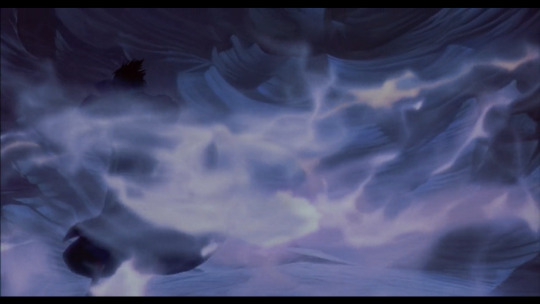
Despite the Lord's anger, He still was gentle with Moses and even showed him more of His glory and presence. So much He made him almost float! Some Christians today would confirm that it is just like this. I truly agree. The gentle peace, tranquility, awe, serenity, glory.

God tells Moses that He will be with him when he goes to Egypt and that the pharaoh will not listen to him. Thus, God will smite Egypt with His wonders. This is told in Exodus 3:12, 19-20.
So He said, “I will certainly be with you. And this shall be a sign to you that I have sent you: When you have brought the people out of Egypt, you shall serve God on this mountain.” (Exodus 3:12 NKJV)
But I am sure that the king of Egypt will not let you go, no, not even by a mighty hand. So I will stretch out My hand and strike Egypt with all My wonders which I will do in its midst, and after that, he will let you go. (Exodus 19-20 NKJV)
Ultimately, God’s presence whether seen or unseen is still with us. Everywhere. That is what POE Moses’ needed, someone by his side to help him do this great task. This was the whole point of God’s character. He is present with us as a compassionate, kind, patient, loving Creator.
Now, speaking of God being with us. Immanuel. The angel of the LORD in the bush. As the angel of the LORD, who was a messenger BUT spoke as a representative of God. Remember when I mentioned that He is who He is? Who could possibly be a messenger who is equal to God? Yep, the angel of the LORD is Jesus Christ.
As it says in the Bible, the angel of the LORD was the one who was present in the burning bush. The pre-existent Christ obviously couldn’t completely reveal His form just yet so He used a burning bush. Why? Not much of an idea.
Now, why won’t God the Father Himself come down as the burning bush? It’s because He is so pure, just, righteous, and glorious that He cannot be in any presence of evil and our human sense would not be able to handle such a pure Being. Moses is human. Any human who would see God the Father in all His glory physically die.
But He said, “You cannot see My face, for no man can see Me and live!” (Exodus 33:20)
Some have thought they saw God face-to-face, like Jacob/Israel when he wrestled with Him in Peniel (Genesis 32:22-32), or Samson’s parents seeing the angel of the LORD. For Jacob/Israel, it was purely a physical manifestation of God not His fully glorious presence. Samson’s parents had the same experience as Moses. The angel of the LORD is not fully God the Father as He would be in heaven. It may be confusing, but either way. This presence of the LORD was still His presence but in another form.
The angel of the Lord and Jesus Christ the Son are the same but in different forms. The angel form of the Christ is more spiritual not physical. Jesus of Nazareth is God but clothed with humanity. (John 14:9)
Thus.

Looking in Moses’ eyes is the best clue that this is the angel of the Lord, AKA the spiritual pre-existent Jesus Christ. Consistent with Scripture and how God is shown with the authority He has? Yep. That convinced me.
So, now that we know who this is, essentially.
Immanuel, עִמָּנוּאֵל, God is with us. His presence of love, light, purity, gentleness, mercy, and grace. This is the core of who He is. Yes, He gets angry. Yes, He gets jealous. However, He also holds gracious love for us so much we can not even fathom how deep, wide, long, or high it is. So, that is why I truly love how the movie decides to show God’s love for Moses. He promises to teach him. He promises He will be with him many times. THIS. Wow.
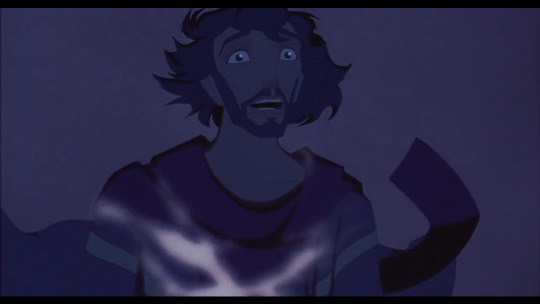
God knew more than anyone that Moses was scared. So He told him what he needed to hear in this tough time. He showed him His glory and power. This later helps him to gain the confidence to show the pharaoh the power God gives him in his staff.

To summarize, the movie gives a wonderful presentation of God’s character. Is it perfect? Of course not. Do we expect it to? Of course not! As a Christian, this movie did a fantastic job. The love of the Lord is what’s most important. He is to be feared, but also to be worshipped. He has many mysteries but through Jesus Christ even before His earthly birth through Mary, He was watching out for His own people. He reveals Himself in many different ways but He is still the same Person.
I have heard so many people come to Christ thanks to this movie. I truly am grateful! Glory be to the Lord and may the Lord guide you in your endeavors with abundance and blessings!
In Jesus’ name, Amen!
#moses#bible#christianity#judiasm#abraham#movie analysis#prince of egypt#poe#moses prince of egypt#God#Jesus#Holy Trinity#Burning bush#Exodus#character analysis#analysis#biblical analysis
5 notes
·
View notes
Note
Will The Chosen get into what Jesus could have thought about his siblings? Did his siblings try to exploit his rising fame by selling his belongings like his old sandals, underwear, tunics, toys, toenail clippings, etc, when his Mother wasn’t looking? Did Jesus get annoyed when they did that?
Ooh, an interesting thought!
There's not very much in Scripture concerning Yeshua's relationship with His siblings (or his parents, really, although there is a little more regarding them). The only story that shows us the dynamic between them is Mark 3:19b-21 (also written about Matthew 12:46-50 and referenced in John 7:5):
Then he entered a house; and once more, such a crowd came together that they couldn’t even eat. When his family heard about this, they set out to take charge of him; for they said, “He’s out of his mind!” - Mark 3:19b-21
In the passage in Matthew, it is clarified that His family here is specifically His brothers.
So from what we can gather, it seems that Yeshua and His siblings were not all that close. His fame (particularly in cities) was more notoriety than anything positive, and from the perspective of a poor Jewish family under Roman occupation, He attracted a lot of unwanted attention. He seems to be treated here as a bit of a liability--"Somebody go get him before he says something really stupid!"--because, due to the size of His audience, retaliation for any anti-Roman sentiments He might express would have been fierce (and likely would have made His family pariahs for being associated with Him, if they weren't already).
But this is all a very Historical™ analysis, and what the Chosen does best is represent that in a very human way. That's why this is something I'd really love to see them portray. Think about it: this is Yeshua's family. Like all of us, He grew up alongside His siblings; as the oldest son, He had a huge part in taking care of them. For someone as tender and loving as Him, treasuring those relationships and then feeling them become strained or even broken must have really hurt him. Not only that, as a Jewish man, these relationships are doubly significant. Family is one of Judaism's highest values, so it hurts particularly deeply when Yeshua's own brothers try to distance themselves from Him.
These people know Him better than probably any other people, and still, they reject Him. Yeshua, in one of my favorite verses, is described this way:
He was despised and rejected— a man of sorrows, acquainted with deepest grief. We turned our backs on him and looked the other way. He was despised, and we did not care. - Isaiah 53:3
That rejection is certainly a major source of His deep grief, but I'd wager the more personal rejections hurt worst--He is human, after all. In Mark 6:4 and Luke 4:24, He makes explicit reference to being spurned by his family and those who knew Him, who rejected Him in spite of the fact, and yet precisely because, they knew Him best.
As someone with a difficult relationship with my own family, that's a struggle I'd really love to see Him go through. Hebrews 4:15 reminds us that Yeshua understands our struggles, but it's hard to remember that that's because he shared them. What an encouragement that is!
Anyway, this was probably more than you were bargaining for--but in short, I sure do hope the Chosen does show us Yeshua with His family and siblings! (And maybe it doesn't have to be all painful...😅)
#yeshua#the chosen tv series#the chosen#christianity#my christianity#meta#my meta posts#quality meta seal of approval#not to hype my own post up i just put that on all meta posts so that i can find them#biblical analysis#because it's not really meta 😅#responses aka the ramblings of my brain#kay can i just catch my breath for a second
28 notes
·
View notes
Text
aziraphale being shit at lying but getting away with everything anyway makes so much more sense during the fucking hilarious ass bildad the shuhite scene where gabriel not only doesn't give a shit but doesn't think it's possible for anyone to lie to him. like. i got it before but now i get it get it. the whole job extended flashback storyline is just so perfect.
#i am really trying to focus on the bits i like about good omens 2 bc there are a lot of them#and the vicious impotent rage and betrayal i feel at the finale needs time to leave me slowly#like the fuckin frozen peas? that shit is excellent#the fuckin tire iron lookin thing being the thing that starts the engine on creating a nebula?#chef kiss#and the FLASHBACKS?????#UGHUFHJ#i loved so many of the little details and vibes#that it ultimately made it so much worse when it just.#did. the thing it did.#good omens#good omens 2#good omens 2 spoilers#original post#rant#tagpost#fr i am going back into my 'the hebrew bible in an ancient near east context' class notes#to look up more shit about job#bc i fuckin know they hid a few easter eggs in there#good omens is nothing if not cleverly disguised biblical literary analysis
30 notes
·
View notes
Text
After thinking about it, I would like to add something to my list of genderfluid Wiley evidence from that ask earlier:
Sure, he carries those apples around all the time for satan allegory reasons, but he's not usually offering them to people. He's usually eating them himself.
I actually think the only time he gives one to someone, he's taken a bite already. And you know who famously ate an apple symbolic of forbidden knowledge?
Wiley is the snake and eve at the same time/depending on context. Not to mention he's influenced by the Lords in Black and the genderfuckery they have going on...
Genderfluid energy. I rest my case.
#of course i dont think this is actually canon but its fun to speculate#if i can't do unnecessary biblical analysis of a comedy musical for the sake of projecting my gender then what is the point honestly#hatchetverse#wilbur cross#uncle wiley
12 notes
·
View notes